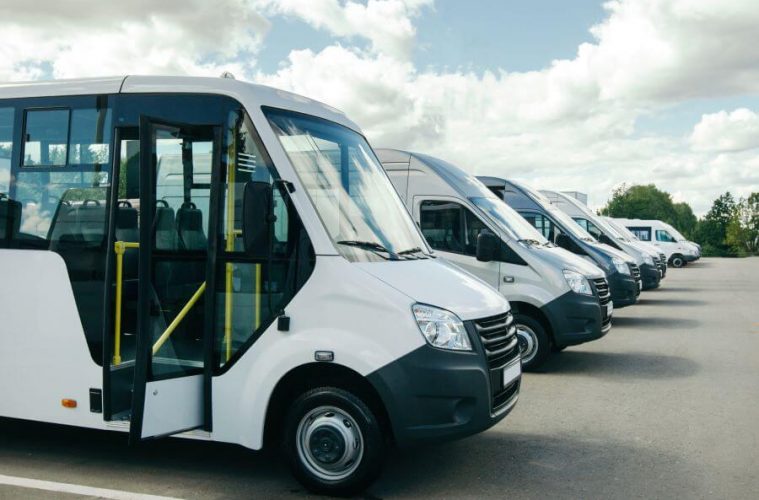Transporting students is one of the key management functions in the school system. This is why schools are very keen on leasing minibuses. Such a simple, efficient, and affordable solution helps even the most diverse problems, from tight financing to the safety and other conveniences of the learners.
Cost-Effective Transport Solutions for Schools
Another interesting aspect concerning school minibus leasing is the availability of funds. When a school decides to buy a car, that means purchasing a new one, it incurs a lot of expenses, which may make the budget thin.
Before, students were compelled to travel in a 16-seat minibus, which cost about £30,000 pounds. But with leasing, a school can obtain a similar vehicle for £400 to £600 a month, with a term of about one year and with the vehicle’s hardware to that effect.
Moreover, leasing eliminates costs that a lessee would never expect, such as the necessary repairs despite their complexity. Also, schools are spared from the costs of sudden repairs as leasing companies have scheduled maintenance services that help keep the cars in good working condition.
Ensuring Safety and Comfort with Modern Minibuses
Another important issue when moving pupils is safety. The minibuses employed are leased and very well maintained according to the set regulations. The UK Department for Education provides very clear requirements for school transport regarding the safety features of the vehicles.
With a range of safety features, parents and school administrators can be assured of safety features like seat belts, electronic stability control, and child lock devices. In addition, during rainy seasons, especially in the winter months, the risks of skidding due to adverse weather can be avoided using electronic stability control.
Most leasing companies include periodic maintenance as a standard component of leasing vehicles in education institutions, which includes basic safety checks so that the students do not travel in poorly kept vehicles. This structure allows schools to concentrate on the educational process without interruptions caused by seeking transport provision.
Flexibility and Accessibility for Schools with Special Requirements
While trying to be inclusive, schools can present generic challenges threatening the learning of each child within the school, especially those who find it difficult to move. This is why the availability of minibus leasing has become necessary. Several leasing companies make and lease out such items as ramps, lifts, belts, or other types of wheelchair-accessible features.
A student who is wheelchair-bound and needs to go to school every day needs a special provision for transportation. With the help of minibus-to-leased facilities, students can travel safely with their mates rather than use school buses.
The rented minibuses retain the flexibility necessary for different school-related activities. For example, when a school wants to take its students to a science museum, a minibus can be hired to accommodate the students and their project materials. This flexibility shows the variety of leasing options available for short—and long-distance trips to guarantee that all learners can have access to a reliable means of transport.
Streamlined Operations and Reduced Administrative Burdens
Leasing such vehicles and more or less similar is a strategy that aids in school operations and, in this case, lowers the administrative burden on schools as it includes eliminating the need for maintenance of vehicles over time. Schools usually are not very staffed, and so they fumble when it comes to trying to take care of many, many vehicles. Most leasing packages also come with vehicle maintenance packages that let school personnel focus on teaching activities rather than worrying about maintenance on the cars.
Meanwhile, when leasing a minibus, the leasing company arranges for the rudimentary checks that any leased minibus would require from time to time.
In addition, thanks to the leasing arrangement, schools will not have those head aching ownership burdens, for instance, depreciation of the vehicle and risk management. Many documentation is held by leasing firms which enable school managements to manage time and resources effectively.
Making Informed Decisions on School Minibus Leasing
Whenever the decision regarding the leasing of a school minibus needs to be made, people having the authority must be empowered to take action in the right amount. Each of these requirements, contract terms, vehicle selection, and maintenance packages must match the transport needs of the school. Before signing the lease for a bus, such schools must understand the implications of mileage limits, the wear and tear policy, the bus return conditions and the terms of the lease.
Asking for key leasing terms, particularly about legal compliance issues and bus school rules, is paramount. It is a UK law requirement that all schools make sure there are drivers who are D1 certified for the operating of the minibuses. Most of these requirements are normally prescribed by leasing companies which makes the work easy for the schools.
In the context of leasing school minibuses from a leasing company, it is recommended that schools consider enrollment figures, geographic coverage, and other special transportation needs. It is possible to access better options for the schools when relying on providers with a variety of vehicles and flexible lease terms.

